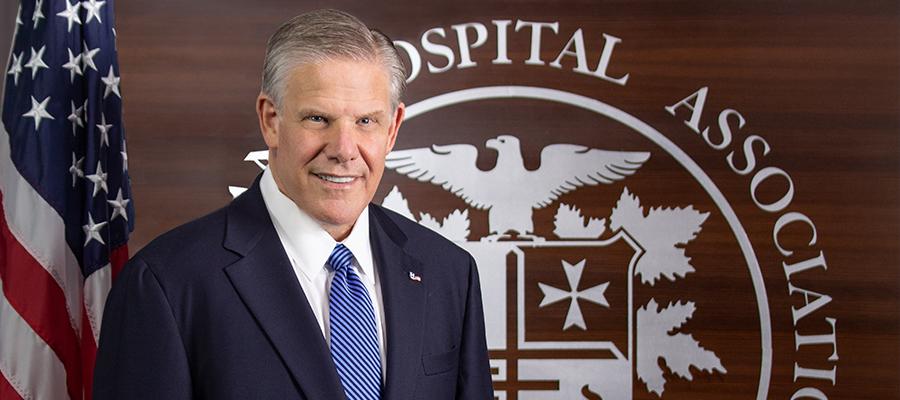Perspective: Upcoming CMS Mandatory Vaccination Rules Should be Feasible, Transparent and Fair

Getting all health care personnel vaccinated against COVID-19 is the right thing to do to keep patients, staff and communities safe. Using a federal regulatory approach to achieve this important goal introduces new challenges that the AHA is working to address.
The Centers for Medicare & Medicaid Services is expected to issue a regulation this month requiring COVID-19 vaccinations for workers in most health care settings receiving Medicare or Medicaid reimbursement. This will affect the majority of health care providers in the nation.
The AHA has repeatedly urged the vaccination of all health care workers, and has supported hospitals and health systems that choose to mandate vaccination. Many hospitals and health systems already have their own mandatory vaccination policies, and they arrived at this point by careful evaluation of the local circumstances in their own facilities and communities.
That’s why we are working with CMS to shape their regulations and strongly urged the agency to craft its interim final rule keeping many important considerations in mind. These include:
- Putting in place appropriate safeguards to preserve access to care in all communities by applying mandatory vaccination policies to all health care providers; providing an adequate amount of time for hospitals to come into compliance; using a progressive enforcement approach; and providing enforcement flexibility if vaccine supply shortages occur.
- Providing clear, specific information about how hospitals can demonstrate their compliance and how CMS will conduct enforcement.
- Allowing exceptions from the mandate for medical reasons and sincerely held religious beliefs, and providing guidance for all providers on how to apply these exceptions consistently.
- Coordinating with other federal agencies, such as the Occupational Safety and Health Administration, the Equal Employment Opportunity Commission and others, to ensure hospitals are subject to only one consistent mandatory vaccination policy.
The data are clear – COVID-19 vaccines are safe, effective and vitally important to bringing us closer to the end of the pandemic. Achieving high levels of vaccination across health care will improve patient safety and bolster patient confidence in the care they are receiving. We will continue to work to ensure federal mandatory vaccination policies are implemented in a thoughtful manner, providing clarity and not confusion as our care providers remain focused on battling COVID-19.

